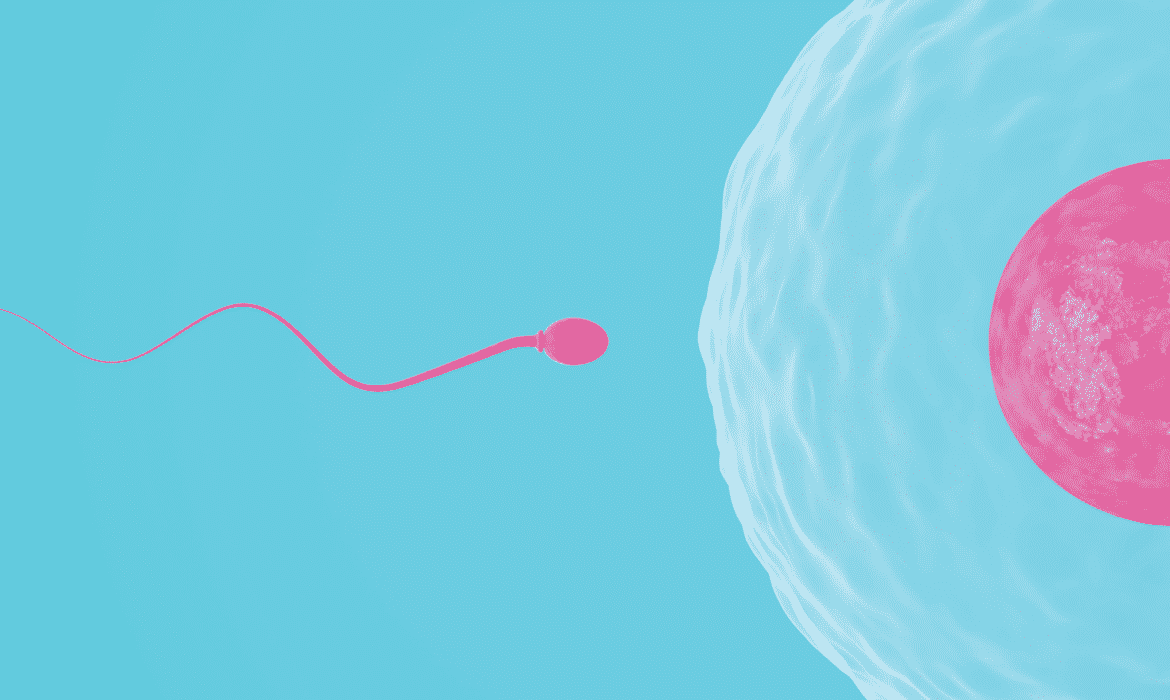The decline in male sperm count and quality
Take a closer look at a man’s sperm cells and you’ll learn about more than just his fertility. A new study, presented at the Endocrine Society’s annual meeting in Chicago in March 2018, shows that sperm count is also a good indicator of general health.
The Italian study looked at more than 5,000 men, half of whom had low sperm counts. They found that those with low sperm counts were 1.2 times more likely than those with normal sperm counts to have higher body fat percentages, higher blood pressure, higher “bad” cholesterol and lower “good” cholesterol. The researchers also found a 12-fold increase in low testosterone levels in men with low sperm counts, and low bone mass in half of them.
“If a patient is trying to increase their chances of reproduction, improving their general health can improve their sperm count and quality,” says Nelson Bennett, MD, a urologist at Northwestern Memorial Hospital. “A global assessment [of health] can change someone’s life, and that can start with a closer look at sperm.”
Down for the count
Over the past four decades, men in Western countries have experienced a jarring overall decline in sperm concentration.
A 2017 report reviewed thousands of studies and concluded that between 1973 and 2011 sperm concentrations fell by 52 percent among men in Western countries. In 1973, the average Western man had a sperm concentration of 99 million per milliliter. By 2011, that had sunk to 47.1 million. Sperm concentrations below 39 million per milliliter are considered below normal and can impair fertility.
The study was “the largest collection of data to date” on the topic, says Asima Ahmad, MD, a reproductive endocrinologist with Fertility Centers of Illinois in Tinley Park. “It is a catalyst to look to the reasons for the drop, whether it’s due to toxins, change in diet, lifestyle or even temperature changes as some have speculated.”
An expanding concern
The first place to look for a culprit may be the collective expanding waistline of Westerners. Over the past 33 years, the worldwide prevalence of overweight and obese adults has increased by 27.5 percent, according to a comprehensive global study in The Lancet. And obesity and sperm health are not a healthy pairing.
Excess fat can alter a man’s hormones, increasing estrogen and lowering testosterone, and can also increase the temperature of the testicles, Ahmad says. “Typically, [testicular] temperature should be lower than your core. If [testicles] are existing at a higher temperature over time, generating healthy sperm in quality and count can be difficult.”
To keep weight in check, men should adhere to a healthy diet, chockful of antioxidants like berries and leafy greens, and add more exercise to their daily life. Harvard researchers found that men who worked out the most had a 33 percent higher sperm count than those who worked out the least. Exercise can also raise testosterone levels, which is often a better option than testosterone replacement therapy for increasing fertility.
“I advise against testosterone therapy if you’re trying to conceive because it drops the sperm count,” Ahmad says. When you take replacement testosterone, your brain thinks you are making enough of the hormone and it sends less stimulation for testosterone and sperm production, Ahmad explains.
Then there are the other things we put in our bodies, like drugs, alcohol and medications. “Smoking decreases your sperm count, alcohol decreases testosterone and some hypertension medications can make an erection more difficult,” Ahmad says.
In a Postgraduate Medicine Journal study, it was found that cigarette smokers had lower amounts of semen, sperm and percentage of healthy swimming sperm compared to men who did not smoke. Men who smoked more than 20 cigarettes per day experienced a 19 percent reduction in sperm concentration.
“If a man wants to reproduce, he should keep himself as healthy as possible, which means avoiding smoking, alcohol, marijuana, opioid and narcotic use,” Bennett says.
Sperm and age
Women are born with all of their eggs, and the quantity and quality slowly decrease with age. Men, on the other hand, generate millions of sperm every day, Ahmad says. It then takes two and a half months for sperm to reach maturity.
“Despite these differences, when it comes down to fertility issues, the causes are 30 to 40 percent male and 30 to 40 percent female,” Ahmad says. “The remaining causes are a combination or unexplained.”
And just like women, men have a biological clock. “Younger men, under 40, generally have more robust sperm count and quality,” Bennett says. Around 40, sperm quality and, therefore, male fertility gradually decline.
Thankfully, some sperm damage can be reversed by adopting healthy lifestyle changes. Small daily changes — staying hydrated, managing stress, eating healthy, exercising and avoiding smoking and drug use — can have a big effect on these microscopic markers of health.
Too Hot to Handle
What you heard about constantly keeping your computer on your lap is true — it actually can damage your sperm cells. Testicles need to be at a specific temperature to manufacture high-quality and high-count sperm, says Nelson Bennett, MD.
For sperm health, watch out for these hot items:
- Laptop computers and cell phones
- Excess fat
- Hot tubs/saunas
- Summer heat
- Briefs (choose boxers instead)













